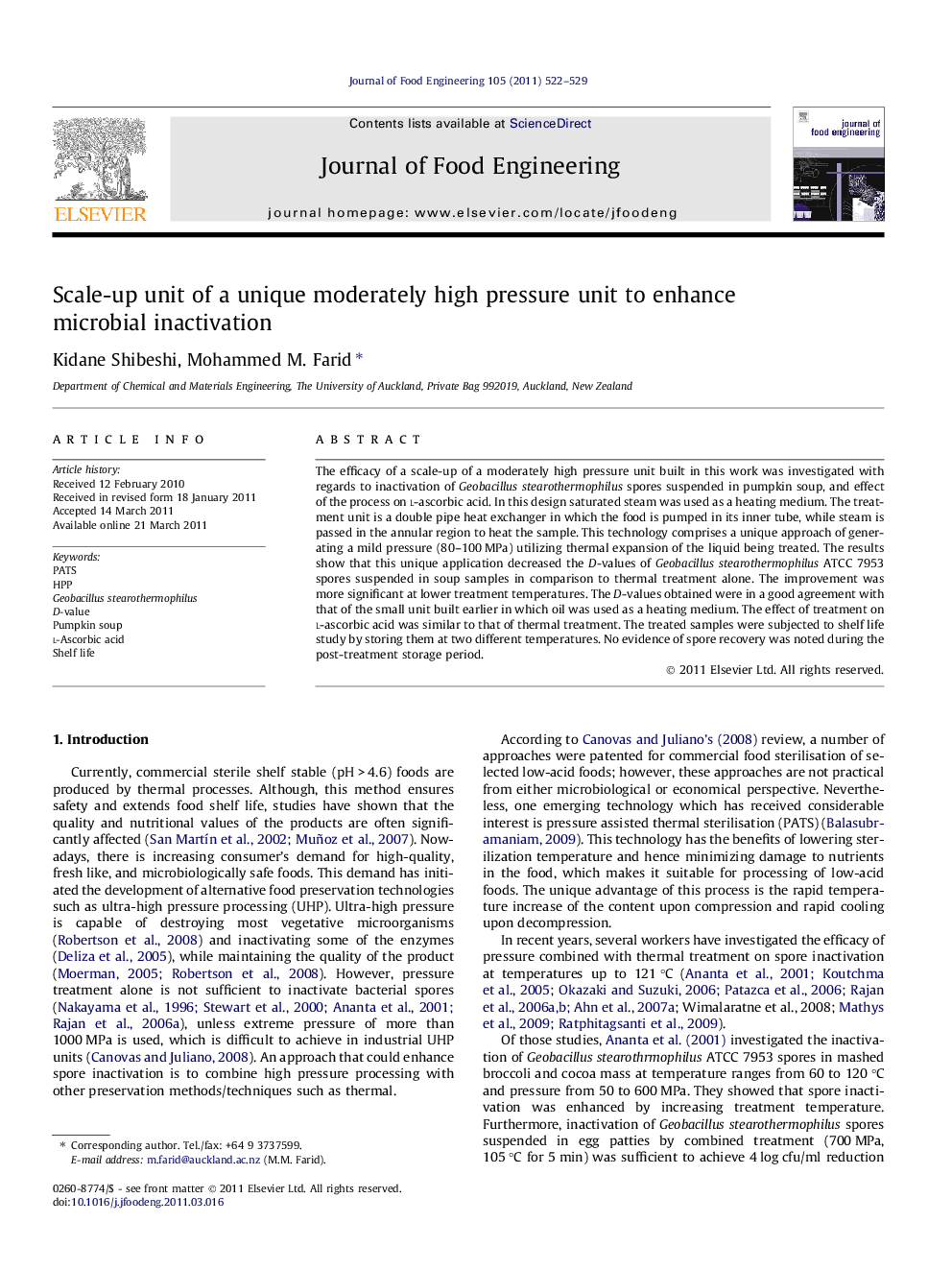| Article ID | Journal | Published Year | Pages | File Type |
|---|---|---|---|---|
| 223942 | Journal of Food Engineering | 2011 | 8 Pages |
The efficacy of a scale-up of a moderately high pressure unit built in this work was investigated with regards to inactivation of Geobacillus stearothermophilus spores suspended in pumpkin soup, and effect of the process on l-ascorbic acid. In this design saturated steam was used as a heating medium. The treatment unit is a double pipe heat exchanger in which the food is pumped in its inner tube, while steam is passed in the annular region to heat the sample. This technology comprises a unique approach of generating a mild pressure (80–100 MPa) utilizing thermal expansion of the liquid being treated. The results show that this unique application decreased the D-values of Geobacillus stearothermophilus ATCC 7953 spores suspended in soup samples in comparison to thermal treatment alone. The improvement was more significant at lower treatment temperatures. The D-values obtained were in a good agreement with that of the small unit built earlier in which oil was used as a heating medium. The effect of treatment on l-ascorbic acid was similar to that of thermal treatment. The treated samples were subjected to shelf life study by storing them at two different temperatures. No evidence of spore recovery was noted during the post-treatment storage period.
